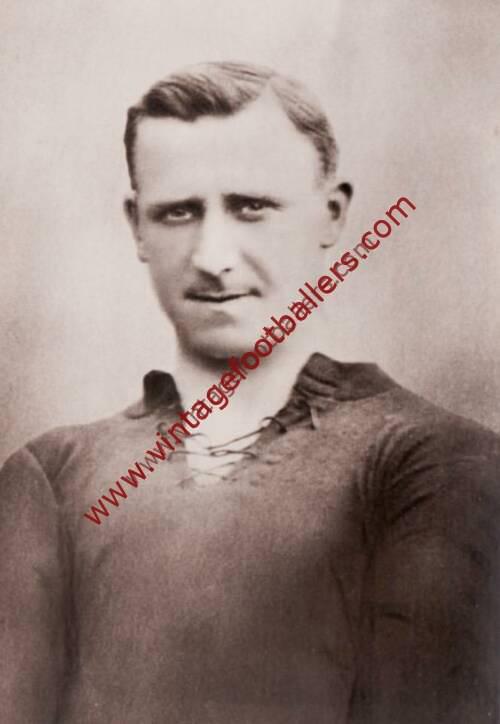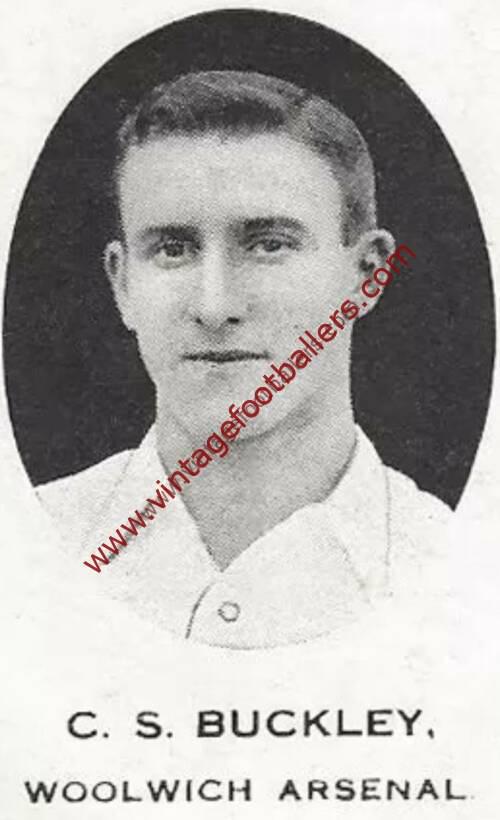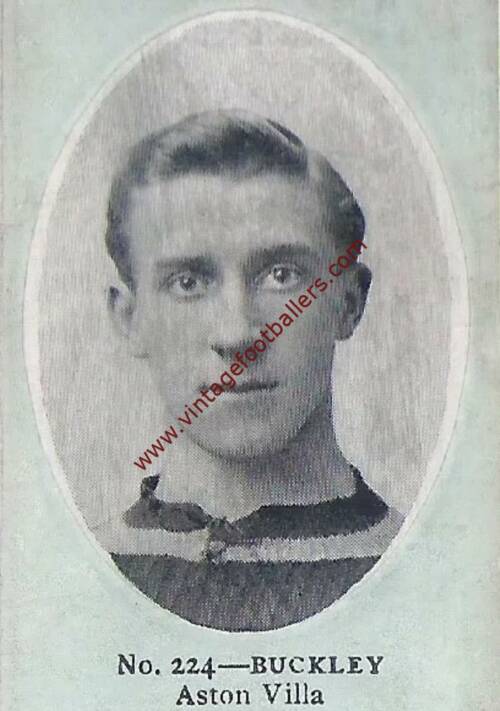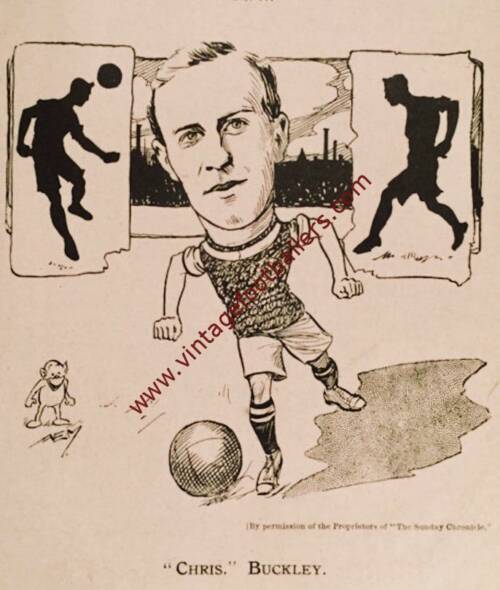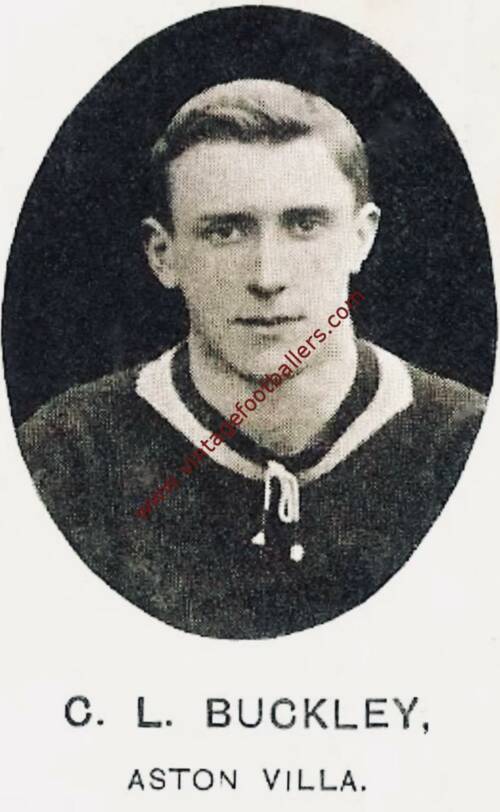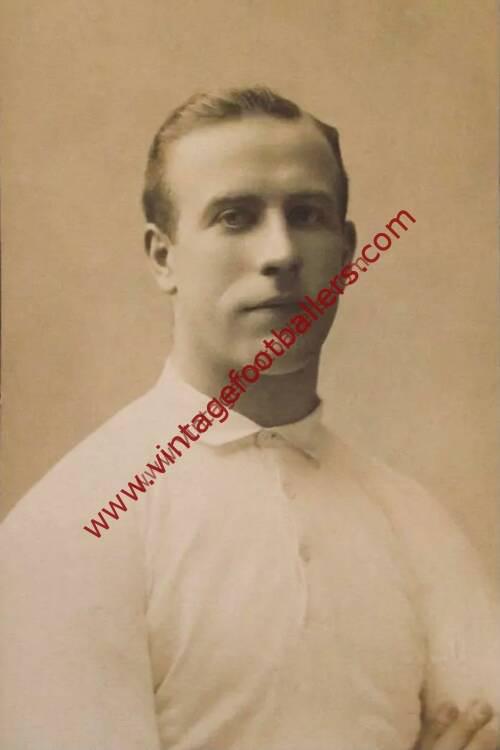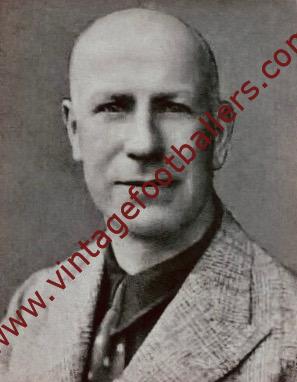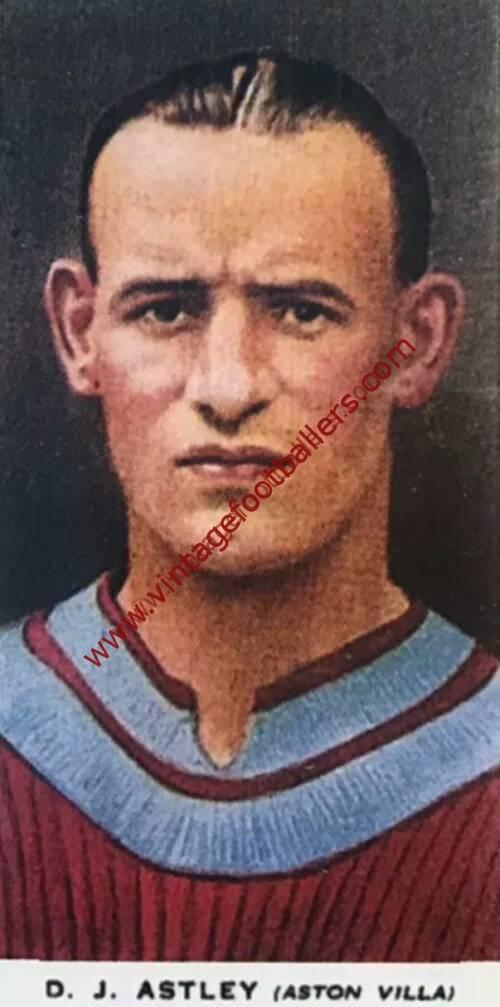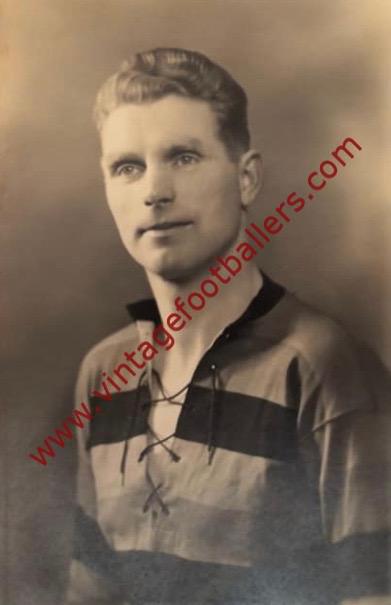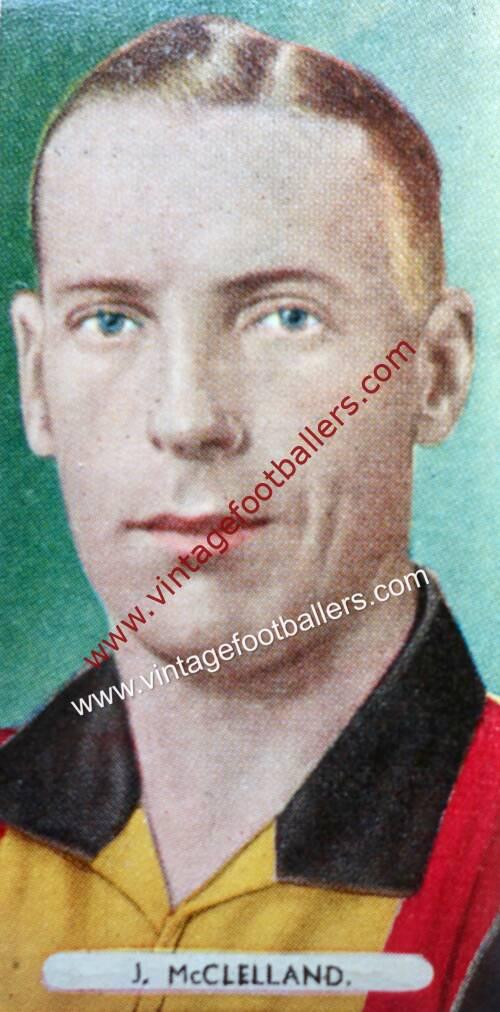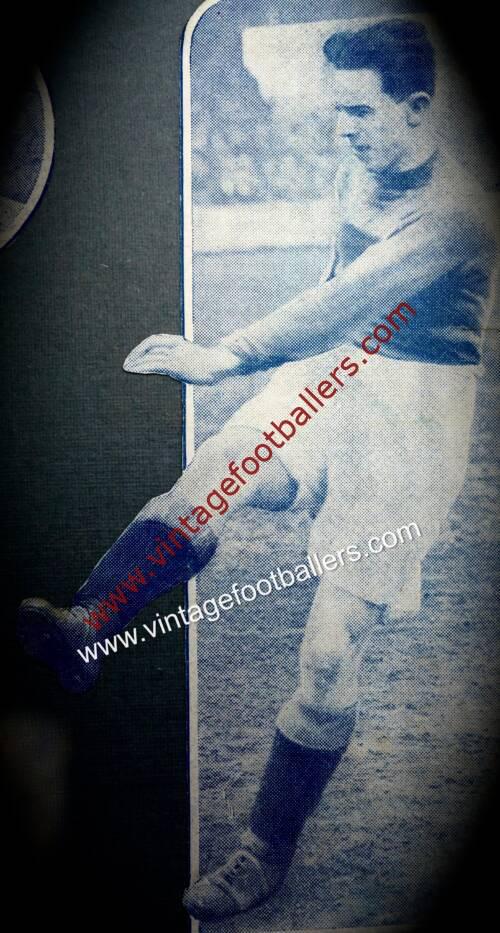Please choose your photo size from the drop down menu below.
If you wish your photo to be framed please select Yes.
Note: 16″x 20″not available in a frame.
Images can also be added to accessories. To order please follow these links
£8.95 – £49.95
Please choose your photo size from the drop down menu below.
If you wish your photo to be framed please select Yes.
Note: 16″x 20″not available in a frame.
Images can also be added to accessories. To order please follow these links
Urmston, Manchester born centre half Major Frank Buckley is one of the most famous football managers in the history of the game. As a young man he signed up for a 12 year enlistment in The King’s Regiment (Liverpool) and expected to serve in The Boer War, but was instead sent to Ireland. While in Ireland he represented the regiment at football, cricket and rugby. He bought himself out of the Army for £18 in 1902 to become a professional footballer, joining First Division Aston Villa, and he remained at Villa Park until 1905 without making a first team appearance. In 1905 he joined Southern League club Brighton & Hove Albion along with his brother Chris Buckley, where he had a single season scoring twice in 25 appearances for The Seagulls.
Signed by Manchester United in the summer of 1906 as understudy to Charlie Roberts, who at the time was playing for England in his position, he spent most of the time in the reserves. He made his Football League debut against Derby County that September, but made only two further appearances across the rest of the season before making the short move to Manchester City in the summer of 1907. He had two seasons at Hyde Road but never established himself in the first team, making 11 appearances during that time before a move to Second Division Birmingham in the summer of 1909 after City’s relegation.
In two seasons at St Andrews he scored 4 goals in 56 appearances but he was soon on the move again, this time to Derby County in May 1911. Buckley was described by one football journalist as being “tall, heavily built, pivotal, hard-working and forceful when attacking.” He made 30 appearances during their 1911-12 Second Division Championship campaign and played two further seasons in the top flight. While with Derby Buckley won his only international cap for England, playing in a 3-0 defeat against Ireland at Ayresome Park, Middlesbrough on 14th February 1914. After their relegation at the end of the season, having scored 3 goals in 97 appearances for The Rams, Buckley left The Baseball Ground to join Bradford City in May 1914. However he made only 4 appearances for The Bantams in September 1914 before the onset of the First World War all but ended his playing career and started a major to his life.
In October 1914, the Secretary of State, Lord Kitchener, issued a call for volunteers to both replace those killed in the early battles of the War. On 12th December William Joynson Hicks established the 17th Service (Football) Battalion of the Middlesex Regiment. This became known as the Footballers’ Battalion. According to Frederick Wall, the Secretary of the Football Association, Buckley was the first person to join the Footballers’ Battalion. The first commanding officer was Henry Fenwick, a career soldier. As Buckley had previous experience in the British Army he was given the rank of Lieutenant. He eventually was promoted to the rank of Major.
During the Somme offensive in July 1916 Buckley was seriously injured during this offensive when metal shrapnel hit him in the chest and punctured his lungs. George Pyke, who played for Newcastle United, later wrote: “A stretcher party was passing the trench at the time. They asked if we had a passenger to go back. They took Major Buckley but he seemed so badly hit, you would not think he would last out as far as the Casulalty Clearing Station.” Buckley was sent to a military hospital in Kent and after operating on him, surgeons were able to remove the shrapnel from his body. However, his lungs were badly damaged and was never properly able to play football again.
In January 1917 Buckley was back on the Western Front. The Footballers’ Battalion attacked German positions at Argenvillers. Buckley was “mentioned in dispatches” as a result of the bravery he showed during the hand-to-hand fighting that took place during the offensive. The Germans used poison gas during this battle and Buckley’s already damaged lungs were unable to cope and he was sent back home to recuperate.
With the conflict over, in 1919 Frederick Wall, the Secretary of the Football Association, suggested that Buckley should become manager of Southern League club Norwich City. Buckley played one game for Norwich in September 1919, when he was the club’s secretary-manager, the last of his career. Buckley developed the reputation for finding talented young players. According to Patrick A. Quirke, the author of The Major: The Life and Times of Frank Buckley (2006): “Buckley relied on tips and advice from his old Army comrades who lived in various areas around Britain. This country-wide scouting network, which he was to call upon time and again during his long managerial career, was the envy of many, as his scouts were all former players and knew what to look for in a young footballer.”
While at Norwich City Buckley discovered Sam Jennings, a miner playing for Basford United. However, the club was in serious financial difficulties and Buckley was forced to sell Jennings to Middlesbrough for £2,500. In March 1920 a Football League club made an illegal approach for one of Buckley’s young players. When the directors refused to make a complaint to the Football Association, Buckley left the club. After leaving football for a period. Buckley met Albert Hargreaves, a director of Second Division club Blackpool while travelling on a train in 1923. He arranged a meeting with Blackpool’s president, Lindsay Parkinson, and as a result Buckley was appointed manager of the club.
Buckley’s first decision was to abandon Blackpool’s traditional strip and brought in players’ shirts of bright orange, or tangerine as it became known. Buckley wanted the club to be seen as “bright and vibrant” and a representative of the “new age”. In his first season Blackpool finished 4th. The club’s star player was Harry Bedford, who was the country’s top goalscorer with 34 goals. When Bedford was transferred to Derby County for £3,000 in 1925, Buckley signed Bill Tremelling from Retford Town as a replacement. Unfortunately, he broke his leg the following season and did not return to the team until the 1926-27 season, when Tremelling ended up as the club’s leading scorer with 30 goals in 26 games.
Buckley believed strongly in the importance of physical fitness. He imposed strick orders as to what the players could eat and drink. They were instructed to have early nights two days prior to a fixture and not to socialise during this time. Buckley introduced physiotherapy and gained a reputation for getting injured players back to fitness in a short time.
In May 1927 Buckley moved to Wolverhampton Wanderers. As Patrick A. Quirke, the author of The Major: The Life and Times of Frank Buckley pointed out: “His experience at both Blackpool and Norwich of acquiring skilled and talented players at little or no cost and then selling them on at a healthy profit was extremely appealing to those concerned with club finances.” As at Blackpool he introduced a new football strip. He designed the shirts himself. They were deep gold with black trimmings. He also brought in new training methods he had used at Blackpool. This included exercises with Indian clubs and weight training.
Buckley gave each of his players a small pocket book in which was printed details of the conduct he expected from them. As well as advice on not smoking, he insisted that they did not go out socialising for a least two days prior to a match. Buckley also informed the Wolverhampton public of these regulations and asked them to contact him if they saw a player breaking the rules. Wolves lost to lowly Mansfield Town 1-0 in the FA Cup in 1929. Buckley was so upset with the performance of his players that he organized a training-run through Wolverhampton town centre for the first-team players on a market-day during the following week.
In the 1929-30 season Billy Hartill scored 33 goals in 36 matches. This included all five against Notts County at Molineux. Despite these goals Wolves could only finish in 9th place in the League. The following season Wolves finished 4th in the Second Division. Hartill was again top scorer with 30 goals in 39 appearances. Hartill then scored 30 goals in the 1931-32 season and helped the club win the Second Division Championship as the club scored 118 goals that season. The Championship winning team that season included only one player that had not been signed by Buckley. The Wolverhampton Express & Star report on the success included the following tribute: “By his splendid work with the Wolves he has built up a reputation as a football manager second to none in the country… At the Molineux Ground he has proved himself a splendid judge of a player. His ability to find a young talent is unequalled and despite the handicaps with which he is faced when joining the club he has discovered a whole team, which has taken Wolves into the highest flight.”
The next five seasons saw Buckley continue to develop the team and they produced gradually improving results. Buckley’s successful dealings in the transfer market earned £130,000 for Wolves in five years before the 1939-45 war. This spell established Wolves as one of the wealthiest football clubs in Britain. Wolves started the 1936-37 season badly. They won only four games out of their first 14 and after a 2-1 defeat at home to Chelsea the crowd invaded the pitch from the South Bank and called for Buckley’s resignation. The crowd uprooted the goalposts before police reinforcements restored order. Buckley was offered police protection but he refused and walked home alone. Newspaper reports suggest that over 2,000 people were involved in the demonstration against Buckley. Buckley later recalled that the main cause of this hostility was his policy of selling established players in order to balance the books. However, he argued this enabled him to play younger, more talented players who became known as the “Buckley Babes”. Wolves then had a good run in the League after Christmas and eventually finished in 5th place behind champions Manchester City.
In 1937-38 Wolves won nearly half their games and finished as runners up in the League Championship, and at the beginning of the next season Buckley appointed Stan Cullis as captain of Wolves. Cullis said that players were expected to do exactly as Major Buckley ordered otherwise “you’d very soon be on your bicycle to another club.” Buckley developed a more direct style of playing football. “It was simply the task of the defenders to get the ball forward as quickly as possible and not to over-elaborate their roles. The wingers were to take opposition defenders on and cross the ball to the central attackers whose job it was to put the ball in the net… He wanted fewer dribbling moves and more passing.”
In 1938 Major Buckley agreed a new ten-year contract with Wolves. He told the local newspaper: “Since coming to Wolverhampton ten years ago I have become so bitten by the Wanderers bug that no other club could ever interest me. It has been a pleasure to work in the town and, while we have had our differences, they have been plainly stated. I shall be happy to spend my football life with the club I so love.” In the 1938-39 season Wolves again finished runners up in the League Championship, this time to Everton. Wolves also enjoyed a good run in the FA Cup and beat Leicester City (5-1), Liverpool (4-1), Everton (2-0), Grimsby Town (5-0) to reach the FA Cup Final against Portsmouth at Wembley. Wolves lost the Final 4-1 with Dicky Dorsett scoring their only goal. Major Buckley’s Wolves became the first team in the history of English football to be runners up in the sport’s two major competitions in the same year.
The outbreak of the Second World War in September 1939 brought an end to League football. Buckley attempted to re-join the British Army but at the age of 56 he was considered too old. Under Buckley Wolves won the 1939-40 Midland wartime league and also won the Football League War Cup in 1942 beating Sunderland 4-1. However Buckley resigned as manager of Wolverhampton Wanderers on 8th February 1944. The following month he joined Notts County on the extraordinary wage of £4,500 a year. While at his new club he signed Jesse Pye. He later sold him for £10,000 to Ted Vizard, the new manager of Wolves.
In May 1946 Buckley moved to Hull City, another Third Division side. The club finished in 5th place in the 1947-48 season. In May 1948 Buckley joined Leeds United. In his first season he signed John Charles, who was later to become a football superstar. Buckley later commented: “I shall never forget that morning when I first met John Charles. I was sitting in my office when they bought in a giant of a boy. He told me he was fifteen. He stood 6ft and weighed more than 11st.”
Buckley, a stern disciplinarian throughout his career, earned devotion and affection, not least because he was also a ‘tracksuit’ manager. He brought in Jack Charlton, who had this to say about him:
“Unlike the pros, we got just two weeks’ holidays in the summer, and while they were away our job was to remove the weeds from the pitch and replace them with grass seed. I remember being sat out there one day with Keith Ripley, another ground staff boy, when Major Buckley came over to us. We must have looked pretty forlorn, the two of us, and to gee us up he said he’d give us five shillings for every bucket we filled with weeds. Now that was an offer we couldn’t refuse. By the time we were finished, we had filled six buckets, and, cheeky bugger that I was, I marched straight up to the Major’s office. And when he asked what I wanted, I told him I was there to claim my thirty bob for the weeds. He nearly blew a bloody gasket! ‘Get out of here!’ he bellowed. ‘You’re already getting paid to do that work – don’t ever let me see you up here again with your buckets.’
“Yet beneath the gruff exterior, he was a kind man, as he demonstrated once when I met him. My shoes must have been a sight, for when he looked down at them, he asked me if they were the only pair I had. I nodded. The next morning, he summoned me to his office and handed me a pair of Irish brogues, the strongest, most beautiful shoes I’d ever seen. And I had them for years.”
However Buckley was unable to get Leeds United promoted to the First Division and in April 1953 he moved to Walsall. Buckley was now aged 70. Although he still had plenty of energy, “his scouting network, so long the mainstay of his talent spotting, was breaking up as his scouts became old and retired.” The club finished bottom of the Third Division in the 1953-54 season and Buckley retired the following year after leaving Walsall in September 1955.
His younger brother, Chris Buckley, won the League Championship with Aston Villa and played for Arsenal before the First World War as well as playing with Buckley at Brighton & Hove Albion at the start of his career.
| Weight | N/A |
|---|
